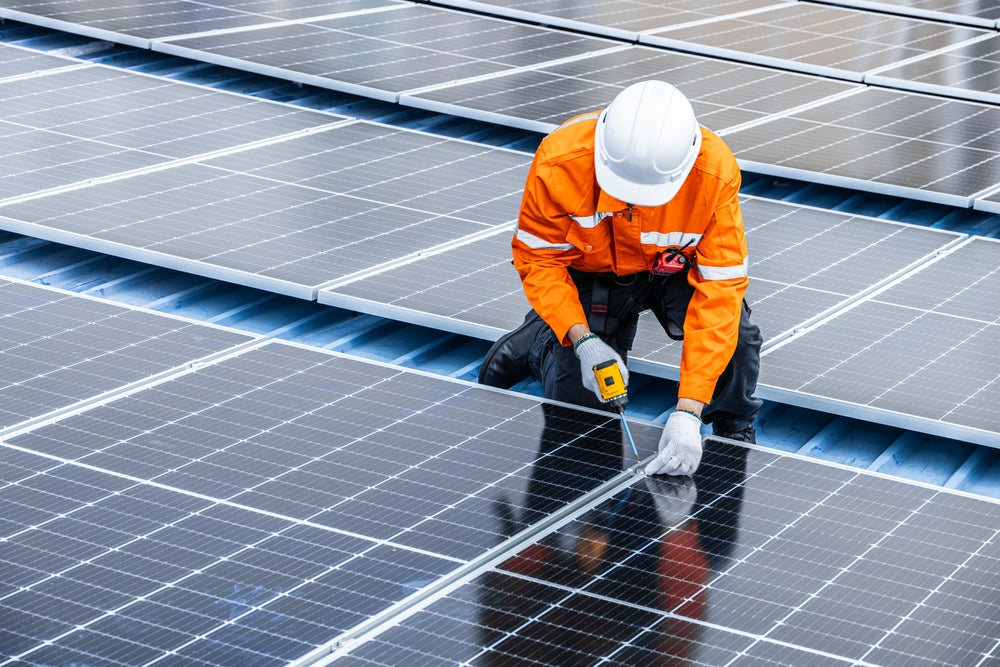
Choosing the Right Solar Panels: Why It Matters
Investing in solar energy is a big decision—one that involves more than just installing panels on your rooftop. You’re choosing a long-term energy solution that will power your home or business for the next 25 years or more. That’s why selecting the right brand matters just as much as choosing the right installer.
Two of the most trusted and widely used solar panel brands are Jinko and Canadian Solar. Both companies offer high-quality, Tier-1 certified modules that are well-suited for a variety of climates, including the hot and sunny conditions found across Pakistan. But how do you decide between the two? This blog breaks down the key differences between Jinko solar panels and Canadian Solar panels to help you make the right choice.
What Do Jinko and Canadian Solar Offer?
Let’s start with a quick overview of both companies. Jinko Solar is a Chinese manufacturer and one of the largest solar panel producers in the world. Known for innovation, Jinko panels are widely used in residential, commercial, and utility-scale projects. Their latest modules include bifacial solar panel options with N-type cell technology, which boosts efficiency and long-term performance.
On the other hand, Canadian Solar, despite the name, has most of its manufacturing in Asia. It’s a globally respected brand that also ranks among the top solar panel manufacturers. Canadian Solar offers both monofacial and bifacial modules, with excellent price-to-performance ratios and reliable warranties.
Both Jinko and Canadian Solar compete closely with other top-tier brands like astroenergy solar panel, especially when it comes to affordability and availability in markets like Pakistan. As demand rises for solar panels, bifacial solar panel, Jinko solar panel, astroenergy solar panel, choosing between top performers requires looking beyond just the name and diving into performance, design, and support.
Efficiency and Output: Which Performs Better?
When it comes to solar panels, efficiency is king. It tells you how well a panel can convert sunlight into usable electricity. Higher efficiency means fewer panels for the same output—a big advantage if you’re working with limited space.
Jinko solar panels typically offer slightly higher efficiency ratings than Canadian Solar. Some of their N-type and bifacial models push the boundaries with efficiencies above 22 percent. Their Tiger Neo and Swan series are popular in large-scale and rooftop installations that require high performance and consistent output even in low-light conditions.
Canadian Solar panels, while slightly lower in peak efficiency (usually around 20 to 21 percent), still deliver strong and reliable output. Their BiHiKu and HiKu series have become common choices for commercial and utility projects. These panels are known for stable performance and are especially good in high-temperature zones.
If efficiency is your top priority—especially for projects in cities with limited rooftop space like Karachi or Lahore—Jinko may offer a slight edge. But for larger installations where you can afford more surface area, Canadian Solar performs very competitively.
Durability and Degradation: Which Lasts Longer?
Every solar panel degrades over time, losing a small percentage of its power output each year. But the rate of degradation varies depending on the brand and technology used.
Jinko’s N-type modules, especially their bifacial solar panels, are known for low degradation rates—often less than 0.4 percent annually. This means after 25 years, your panel could still produce more than 90 percent of its original output. These panels also come with robust product and performance warranties, reflecting their high quality.
Canadian Solar panels also perform well in this department, with an average annual degradation of about 0.5 percent. While slightly higher than Jinko, this still meets international standards and ensures that your system will remain productive for decades.
So if long-term performance is a major concern, solar panels with N-type cells offer a longer lifespan and better power retention. However, Canadian Solar remains a dependable and cost-effective alternative.
Design Features and Panel Types
In recent years, design and innovation have become important factors in solar panel selection. Both brands have stepped up by offering advanced features, including bifacial solar panels, half-cut cell technology, and high-density packing.
Jinko Solar leads in innovation with a strong lineup of bifacial and N-type models. Their bifacial panels come with transparent backsheets or dual glass for higher energy harvest. These are ideal for installations over reflective surfaces like white rooftops, concrete slabs, or open fields. Jinko’s focus on aesthetics also makes them a favorite for homes where panel appearance matters.
Canadian Solar, on the other hand, emphasizes rugged durability. Their panels are tested under extreme conditions, including high wind, snow, and sand environments. This makes them especially suited for rural or off-grid installations in Pakistan’s interior regions. Their bifacial options are competitive, though they tend to use PERC-based technology instead of the newer N-type.
If your site allows for back-side reflection, or if you're interested in higher yield from the same area, bifacial solar panels from Jinko or Canadian are both great choices. Jinko, however, pulls ahead in terms of design innovation.
Availability and Price in Pakistan
Now let’s get practical. You want a solar panel that’s not only efficient and durable but also available locally at a fair price. In Pakistan, both Jinko and Canadian Solar have widespread distribution through authorized dealers.
Jinko solar panels are slightly more expensive than Canadian Solar, mainly due to their newer technology and higher efficiency. That said, the extra cost can pay off in long-term performance and savings, especially in commercial or urban residential projects.
Canadian Solar panels are more budget-friendly and available through most solar installers nationwide. If you’re planning a larger project or are constrained by budget, Canadian Solar offers great value without sacrificing much in terms of quality or reliability.
Both brands also offer support through local partners who help with warranty claims, installations, and system maintenance. Make sure to buy from certified distributors to ensure product authenticity and warranty coverage.
Final Verdict: Which One Should You Choose?
So, what’s the difference between Jinko and Canadian Solar panels? Here’s a quick summary:
-
Efficiency: Jinko has a slight edge with N-type and bifacial models.
-
Durability: Both are excellent, but Jinko’s degradation rate is lower.
-
Technology: Jinko is ahead with innovation, though Canadian is catching up.
-
Cost: Canadian Solar is more affordable and better for larger systems.
-
Availability: Both are widely available in Pakistan with good local support.
If your goal is long-term efficiency, premium technology, and a future-proof solar setup, Jinko solar panels are a strong choice. But if you want a dependable, cost-effective solution with proven performance, Canadian Solar remains a top-tier option.








